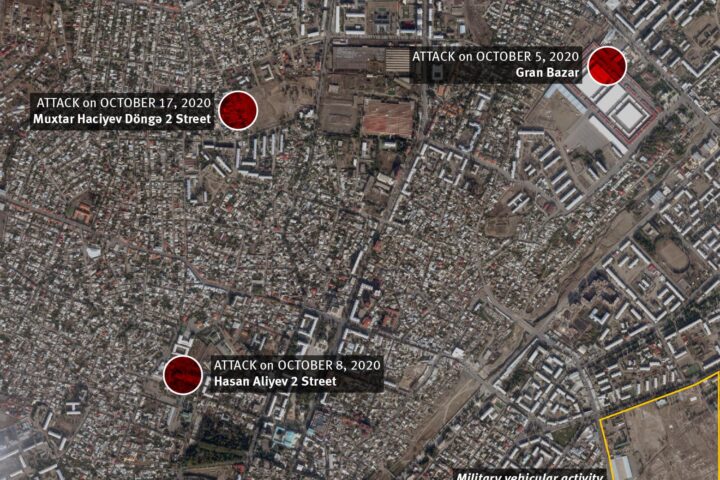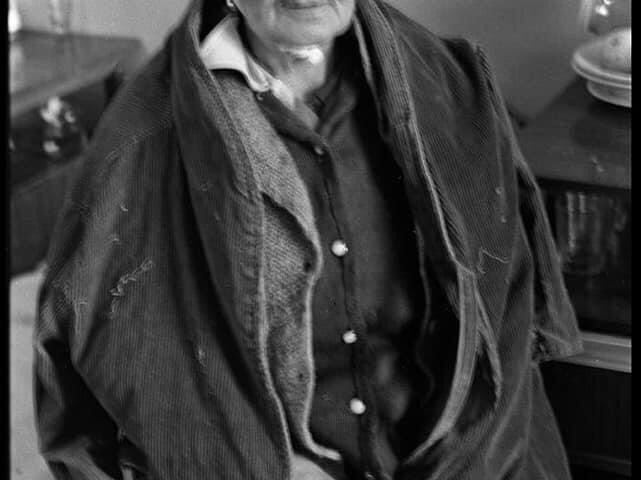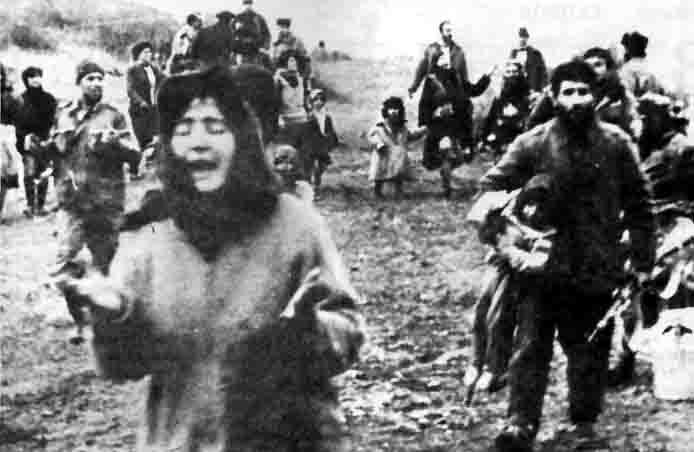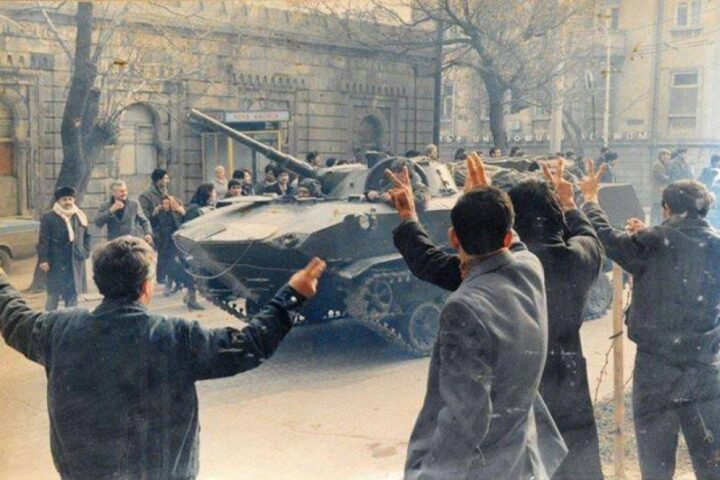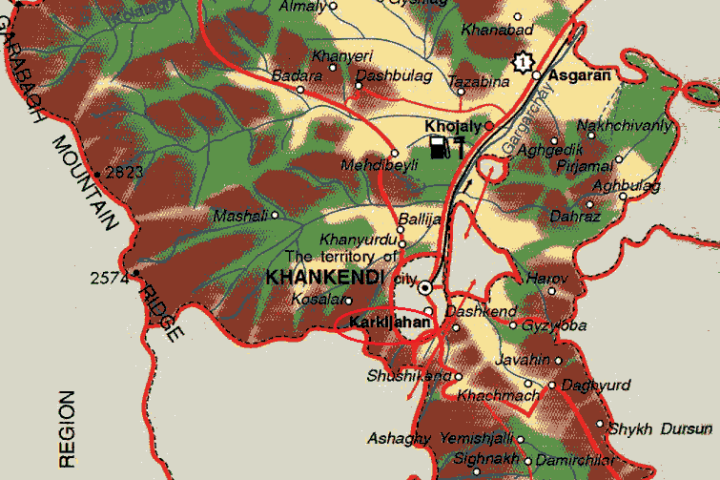Ideas on the Nagorno Karabakh Conflict Resolution
Presented by Göran Lennmarker, Special Representative on the Nagorno Karabakh Conflict. Annual Session, Washington, July 2005
1. Negotiations on a peaceful settlement of the Nagorno Karabakh-conflict are under way between Armenia and Azerbaijan. The OSCE Minsk-group provides the format for the current negotiations and is supportive in the process.
2. The alternative of a new war is unthinkable. It would bring new misery, new refugees, and more dead and injured. Whatever trust there is will be lost.
3. Thus, there is an urgent need to find a solution in order to end the personal, economic, and social suffering on both sides. It is important to stress that time is not working in favour of any of the sides.
4. The solution must be based not on power politics or double standards but on international norms and the values of Europe.
5. The rules and the standards of Europe, as identified by the commitments agreed to by participating states in the European Institutions, have been tested and adopted in many countries. Of particular interest to the South Caucasus region is the experience of the three Baltic countries, which less than fifteen years ago were Soviet republics like Armenia and Azerbaijan.
6. The European model of conflict solution and integration, based on respect of minority rights, could inspire the permanent solving of the conflict over Nagorno-Karabakh and other conflicts in the South Caucasus region.
7. This model is built against a background of centuries of wars and conflicts. Instead of repeating the mistakes of the past, the peoples of Europe have decided to build a common free and prosperous future, with full respect for each other’s differences and traditions.
8. Both Armenia and Azerbaijan are already members of the OSCE, Council of Europe, and NATO’s Partnership for Peace (PfP). They have partnership and co-operation agreements (PCA) with the EU and will be included in the newly established European Neighbourhood Policy.
9. The conflict is largely a legacy of a past, forced upon the two sides by the often brutal population policies of foreign powers. Armenia and Azerbaijan have suffered from a long history of aggression and oppression, and both states must feel sure that these historic realities will not happen again.
10. Armenian central concern is national security. Due to very tough historical experiences within the Ottoman, Russian, and Soviet empires there are deep rooted feelings of insecurity and threat regarding both the national identity and the security of its people.
11. Azerbaijani central concern is of injustice. A large part of the country is occupied and a million people are refugees or IDPs. As a result, there is a deep rooted feeling of Azerbaijan being a victim of aggression.
12. It is vital for the Armenian side to satisfy the central concern of Azerbaijan. Likewise it is vital for the Azerbaijani side to satisfy the central concerns of Armenia. Otherwise the process will fail.
13. Both parties stress a historic rather than religious or ethnic nature to the conflict.
However, there are wide differences in the interpretation of history. A bi-partisan‘truth and reconciliation committee’should try to reach a common and objective understanding of the past. This is particularly important for those who have suffered and are seeking justice.
14. Coming generations must not repeat the mistakes of earlier generations. A durable
solution to the conflict will best be achieved in an environment of security, democracy, and prosperity within the rule of law.
15. A lasting peace must be based on a win-win concept where both Armenia and Azerbaijan come out better. This can only be achieved in a dynamic integration process where national security, democracy, and prosperity are simultaneously enhanced for both parties. This process must happen through co-operation rather than through external pressure. Lasting cooperation must be voluntary and no-one forced to participate.
16. Such a solution must be based on confidence, which takes time to build. Thus, it is even more important to act now.
17. Experience from European integration points to four central elements that must be
satisfied.
•First: participating countries must feel that their national security is not at risk. A
secure neighbour means security for oneself.
•Second: high standards of democracy, human rights, and minority rights must be
respected. This makes it possible to develop trust in the governments of other
countries. Undemocratic governments are inherently unstable.
•Third: economic integration builds a common strong interdependence through shared prosperity, and this is the most solid basis for development, since it affects the whole population. There are no reasons why the citizens of Armenia and Azerbaijan should not enjoy a good European standard of living.
•Fourth: freedom of movement for individuals further underpins integration,
particularly for young people.
18. Strong international institutions stand ready to support Armenia and Azerbaijan with respect to all these four central elements. The OSCE provides the framework of the process and has a comprehensive security concept. NATO and its PfP are very experienced in building national security and mutual trust. The Council of Europe has developed the standards and mechanisms to promote democracy, human rights, and minority rights. The EU and its European Neighbourhood Policy offers a process leading to gradual economic integration into the EU’s internal market, which is one of the most powerful roads to prosperity. However, freedom of movement must first be established by the parties themselves, but will in a longer perspective also be achieved on a European level. There is a golden opportunity for Armenia and Azerbaijan to build on this international support. This is a generous offer and it must be seized.
19. Examining wider perspectives, Armenia and Azerbaijan could strive to build, together with Georgia, a common area characterized by security, democracy, and prosperity. The authorities of the three countries in the South Caucasus are encouraged to accept this offer of integration and to take an active role in developing it to the extent they deem desirable for their countries.
20. A wider peace process must have broad public support and a parliamentary dimension. Thus, it is the responsibility for the entire political establishment and for the media to support such a process. An integration process would be hampered if one state is met with hostility from the media, opposition parties, or the public at large in the other state or from influential groups abroad. Specifically, aggressive statements from one side to the other side would be a disservice to the process.
21. In the modern and integrated world occupation will be impossible. If land, previously held by one side, is demilitarized, no direct military gains will result for the other side.
22. A system for inspection to verify demilitarized zones will be crucial, at least for a
transition period. An international preventive force could be set up for this purpose and in order to monitor and guarantee the security of Nagorno-Karabakh and surrounding areas of Azerbaijan.
23. A concerted effort must be made for a swift demining of all mine fields. International support and expertise will be essential to make this possible.
24. It is vital that roads and railways between Armenia and Azerbaijan are reestablished. There must be secure links between Armenia and Nagorno-Karabakh and between Nachitjevan and Azerbaijan proper.
25. All borders between the two parties should be open. Also the outside borders must be open. All forms of sanctions must be dismantled by outside countries.
26. Each individual, particularly if she belongs to a minority, must feel secure in her own environment. Thus, human rights, including minority rights, must be upheld, and a political culture that fully supports rule of law and minority rights safeguarded.
27. The negotiations must result in a solution ending the suffering of refugees and IDPs. Questions concerning the return of refugees and IDPs as well as lost property must be carefully considered in this context.
28. The status of Nagorno-Karabakh is at the very center of the conflict. If a solution based on modern integration is found between Armenia and Azerbaijan, it will be far easier to find a solution to the status of Nagorno-Karabakh. Open borders and an integrated economy will make control of territory less important and thus less controversial.
29. Nagorno-Karabakh itself wants to be an independent state. However, the wider Caucasus area has numerous small populations. The breaking up of the area into very small independent states is seen as dangerous and thus not an alternative. This is why the international community is not prepared to grant independence to the various regions in the area, including Nagorno-Karabakh. A possible option, however, remains an arrangement in which Nagorno-Karabakh affiliates with Armenia. This could take many different forms. Armenia desires security for Nagorno-Karabakh, and this would form the highest degree of security.
30. Separation is one possibility. Autonomy is another. Is it really possible in real life to make an autonomy solution work to both sides advantage? As a Swede I have to say yes out of experience. The Aland islands which are totally Swedish speaking and feel part of Swedish culture, were decided by the League of Nations to be part of Finland. During eighty-four years, including wars and severe hardships for Finland, the autonomy has been kept and the Aland islands feel very happy with being part of Finland. With both countries part of an integrated economy and freedom of movement, but basically also sharing the same religious pattern, this solution is an exemplary one. Aland is today one of the very richest and most prosperous regions in Europe.
31. Azerbaijan wants, within itself and based on European experience, to give Nagorno-Karabakh the highest degree of autonomy that exists in the world, which – should it be the case – demands a lot: Azerbaijan would have to make Nagorno-Karabakh feel really welcome and not be seen as a conquered enemy or occupied territory. The first step would then be to establish mutual direct contacts. Nagorno-Karabakh would have to be able to keep its identity, and its population would have to be convinced that their rights will be protected by a reliable and independent legal system within Azerbaijan. A very high degree of autonomy would demand substantial financial support that would put strains on the national budget of Azerbaijan.




